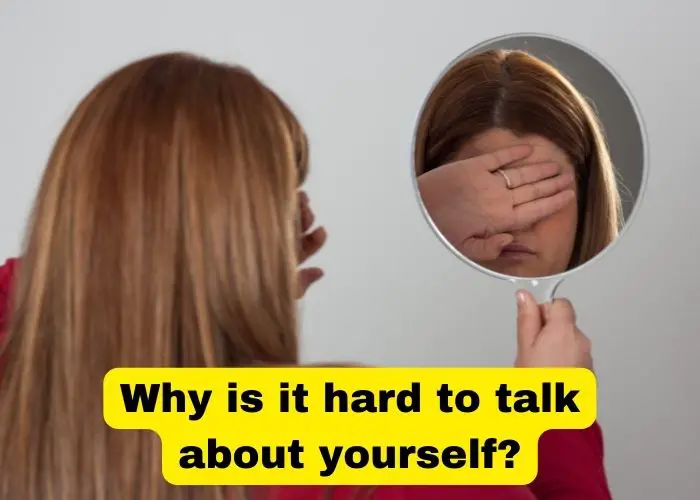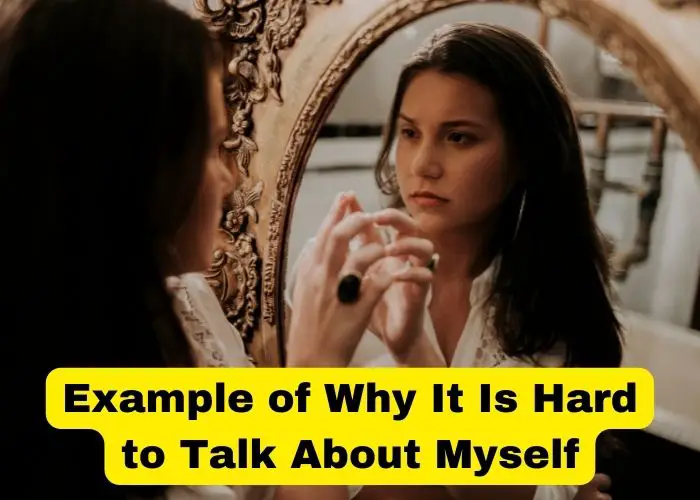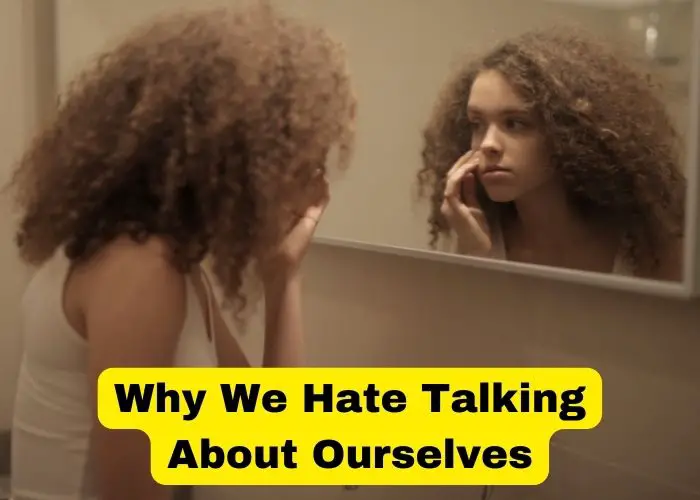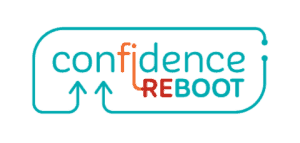Am I the only one that thinks it can be hard to talk about myself?
It turns out it is normal for your enthusiasm and ability to talk about yourself to ebb and flow. In some situations, it’s easier; in others, not so much. Social anxiety can easily creep in, especially if you are in a new environment.

We’ve all been there. You’re at a party or in a meeting, and someone asks you what you do for a living. The panic sets in as you try to think of something interesting to say that will make you sound like an interesting person. It’s hard to talk about yourself, and it’s normal to feel awkward doing it. But don’t worry, I think this will help. In this blog post, we’ll discuss why it’s hard to talk about yourself and give you some tips on how to make it easier.
Table of Contents
Example of Why It Is Hard to Talk About Myself

Recently, I was invited to a virtual business connection group. I didn’t really want to do it, but to appease my friend, I said I’d log in.
I thought I was there to just listen and get an idea of what the group of new people was about.
It was a 7:30 am zoom call kind of thing. I was still rubbing my eyes, trying to wake up.
The speaker/moderator opened the meeting and immediately introduced me like this:
“This Paul, he wrote a book on search engines. We are happy to have him here. Paul, we give new attendees a minute and thirty seconds to share what they do and anything else that is important for the group to know about them.”
My response –
Uh… hi… (crickets) I had no idea what to say. I felt so uncomfortable.
All I could think about was one minute thirty seconds, one minute twenty-nine seconds, and so on. It felt like a long time.
I felt like I was taking a timed test in school. I did horribly at those, by the way.
What could I possibly say? All the training went out the window.
I don’t remember really what I said, but I do remember that no one said a word after I finished, and the moderator awkwardly chimed back in with a “Thank you, Paul.
Why We Hate Talking About Ourselves

It’s Easier to Let Others Talk
It’s not as risky. When we are passive, we can simply spend our time judging and assessing others. They say the easiest job out there is one of the critics. It’s the difference between watching a tennis match and playing a tennis match. Although we don’t think of it that way, there is a huge difference. You have to get on the court and expose yourself for your true abilities.
We are actually in Control When Others Are Talking
If you have ever taken a course on sales, the one asking all of the questions is the one in control. They are the pitcher, you are the batter, and they remain in control for as long as they can make you respond to their questions.
It’s Safer Socially When Others Are Talking
There is a Bible verse that says that a fool is thought to be wise as long as he keeps his mouth shut. Once we open our mouths, everyone gets to see just how confident we are. Sometimes, it’s easier not to say a word.
Because Bragadocious is Atrocious
Nobody likes the endless self-centered self-promoter.
One of the main reasons it’s hard to talk about yourself is because you don’t want to come across as bragging. We’ve been taught from a young age that it’s not polite to brag, so we often hold back when talking about our accomplishments or positive attributes. This can make it difficult to find things to say when asked about ourselves because we don’t want to sound like we’re bragging.
What will they think of me?
Another reason it’s hard to talk about yourself is that you’re worried about what other people will think. We all want to be liked and accepted, so it’s natural to worry about saying something that will make someone, not like us. It’s a good thing we want to be liked as long as the internal monologue is kept in check. This can lead to us either saying nothing at all or downplaying our accomplishments and qualities.
How To Cast A Positive Light On Your Personal Life By Developing Conversation Skills
So now that we know why it’s hard to talk about ourselves let’s look at some ways to make it easier. One way to make it easier is to practice talking about yourself in front of a mirror. This will help you get used to saying things about yourself out loud, and you can also practice different ways of saying things until you find what sounds natural to you. There will be a right way for you that might be different than others. What makes you comfortable talking about yourself in social interactions or with a new friend varies from person to person.
Craft Your Life’s Elevator Pitch.
Part of the problem that we have when we talk about ourselves is that we don’t know how to offer up information that others can hook into and connect with.
Do some research on the most important components. The most important thing and often the next step is to offer up people points they can relate to in conversation.
Conversation skills can grow through practice. Remember that you don’t have to spend much time “trying” to present your life and world in a positive light. We all have struggles and victories.
Have a Couple of Key Facts or Memories that You’d Enjoy Talking About on Reserve
Another way to make it easier is to have a few key points or stories about yourself that you can fall back on when asked about yourself. This way, you won’t have to start from scratch every time someone asks you something, and you’ll sound more confident when you’re talking.
Remember that it’s okay to be nervous when talking about yourself. Everyone feels this way at some point, so don’t worry if you’re not perfect. Just relax and be yourself, and you’ll be fine.
It can be helpful to think of different ways to present information about yourself so that you don’t get stuck in one way of thinking.
Other helpful conversational tips for taxing social situations.
If you find yourself in stressful situations the entire time you are meeting someone new, try to relax.
Be free to pass the conversational ball to the next person so you can spend less time talking about yourself.
Some common questions people ask are: “What do you do?”, “Where are you from?” and “What are your hobbies?”.
Why small talk seems to evolve into difficult conversations? Anything that is forced will eventually feel awkward. The good news is that recognizing the awkwardness and accepting it is the first step to a more authentic relationship.
Sometimes even acknowledging it out loud is a great way and powerful tool to dispel negative feelings. It’s important to minimize the inner monologue, try to stay outside of your head, and present with your new acquaintance. Your own thoughts can be really loud, but remember they are just chemical reactions in your brain to what you perceive is happening. Acknowledge your inner thoughts and inner feelings as they come up, but don’t get stuck. Sometimes, when I have negative thoughts, I have a mini internal conversation in which I thank my brain for trying to keep me safe and let it know that I have what it takes to handle the situation.
What Do You Do If That Doesn’t Help?

In extreme cases, you may want to seek out professional help. There could be a concern about an underlying mental illness that is making things more difficult. If you have spoken to a trusted adult or close friends and still come up short, it may be a good idea to look into getting an evaluation of your mental health condition.
Monitoring too much negative self-talk can be difficult if you are dealing with bipolar disorder, anxiety disorders, or other mental health issues, so understand that emotional states can have a major impact on your personal conversations. In the long run, getting access to online resources and professionals to deal with any underlying mental health problems is a good move.
If everything comes back normal, you know that the only way to improve your own experience at the next impromptu meeting or networking event is by putting in the hard work and practice of simply having more conversations.
More practice is the only way for you to improve your positive self-talk.
Monitoring too much negative self-talk can be difficult if you are dealing with bipolar disorder, anxiety disorders, or other mental health issues, so understand that emotional states can have a major impact on your personal conversations. In the long run, getting access to online resources and professionals to deal with any underlying mental health problems is a good move.

